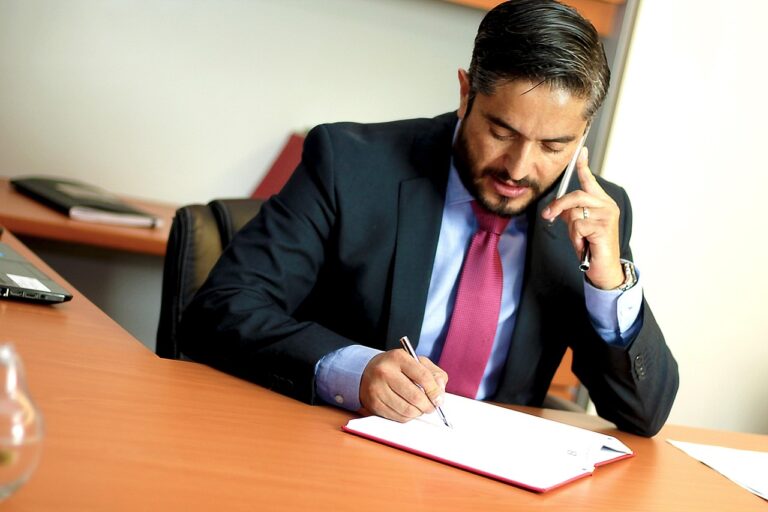Questions To Ask Car Accident Lawyer
In the aftermath of a car accident, the expertise of a seasoned lawyer can be invaluable. However, it’s paramount to ensure that your chosen legal representative is equipped with the right skills, experience, and strategy to adequately handle your case. From their litigation background to their fee structure, the questions you ask can significantly impact the trajectory of your case. As we explore these pivotal inquiries, you’ll not only gain insight into what you should be asking, but also why these questions are crucial in the first place.
Assessing Lawyer’s Experience
When considering legal representation for a car accident case, assessing a lawyer’s experience is a crucial first step. A lawyer’s qualifications are a key indicator of their ability to effectively represent you in court. Qualifications can range from educational achievements to specific certifications in relevant areas of law.
In addition to qualifications, trial experience plays a significant role in choosing a lawyer. Experienced lawyers will be more familiar with court processes, have established relationships with court personnel, and be well-versed in trial protocols. They also have likely faced a variety of case scenarios, enabling them to adapt their strategy according to the unique aspects of your case.
Furthermore, understanding a lawyer’s experience in car accident cases is paramount. Lawyers who specialize in these cases will have a deep understanding of the laws, rules, and regulations pertaining to car accidents. They are more likely to stay up-to-date with the latest developments and rulings in this field.
Understanding Legal Fees
Understanding the structure of legal fees is crucial when hiring a car accident lawyer. This involves interpreting contingency fee arrangements, comprehending how hourly rates are determined, and getting clarity on the potential costs of litigation. Additionally, before hiring a car accident lawyer, it’s important to consider whether hiring a local attorney can benefit your case. Local lawyers often have a better understanding of regional laws, court systems, and may offer more personalized service. This clear understanding will ensure financial transparency between you and your lawyer, ultimately making the legal process less daunting.
Decoding Contingency Fee Arrangements
Often, individuals seeking legal assistance after a car accident find themselves perplexed by the concept of contingency fee arrangements. Simply put, a contingency fee is a payment to a lawyer that is contingent, or dependent, on the outcome of the case. If you win, the lawyer gets a percentage of the settlement or judgment. If you lose, you owe the lawyer nothing for their time and labor.
This fee structure offers potential clients the ability to pursue justice without worrying about upfront legal costs. It aligns the interests of the client and attorney, as both parties stand to benefit financially from a successful outcome. The percentage charged can vary but is typically around 33% to 40% of the total recovery.
However, keep in mind that a win does not always guarantee a substantial payment to the client. Expenses like court fees, expert reports, and depositions might be subtracted from the total recovery before the contingency fee is calculated. Therefore, it’s crucial to clarify these details with your lawyer upfront to avoid any unexpected financial obligations.
Hourly Rates Explained
Moving from contingency fee arrangements, another common payment structure in the legal world is the hourly rate. This method of billing, known as hourly billing, involves the lawyer charging a set amount for each hour spent working on your case. It’s crucial to understand that these rates can vary greatly depending on the lawyer’s experience, specialization, and region.
Rate negotiation is an important part of this process. You should feel comfortable discussing the proposed hourly rate with your lawyer and negotiating a fair rate if needed. Remember, a higher hourly rate doesn’t necessarily mean a higher overall cost. A more experienced lawyer may work more efficiently, and thus, the total hours billed could be less.
Here’s a simple table that explains the concept further:
| Hourly Billing | |
|---|---|
| Definition | A set amount charged for each hour spent working on your case. |
| Variability | Rates can vary based on lawyer’s experience, specialty, and region. |
| Negotiation | You can negotiate the hourly rate with your lawyer to reach a fair cost. |
Litigation Costs Breakdown
In the realm of legal proceedings, grasping the intricacies of litigation costs is paramount to managing your budget effectively. These costs encompass attorney fees, court fees, expert witness fees, and other expenses related to the case. It is crucial to understand that these costs can be substantial, and therefore, litigation funding may be a viable option to explore.
Litigation funding is a process where a third party provides the financial resources to enable costly litigation or arbitration cases to proceed. The litigant obtains all or part of the financing to cover its legal costs from a private commercial litigation funder, who will recover the funds invested plus a return if the case is successful.
Moreover, cost transparency is a vital factor to consider. Your lawyer should provide a detailed breakdown of all potential costs you may incur during the litigation process. This includes a clear explanation of their fee structure, possible court costs, and any additional expenses that may arise.
Communication and Availability
Effective communication and consistent availability form the cornerstone of your relationship with a car accident lawyer. These elements are crucial in meeting client expectations and ensuring lawyer responsiveness. Frequent, clear, and open dialogue can significantly influence the progress and result of your case.
Ensure you understand how your lawyer plans to communicate with you, whether via email, phone calls, or in-person meetings. Get clarity on how often you can expect updates, and the nature of these updates. You should also know how quickly they respond to queries or concerns.
Availability is another crucial aspect. Inquire about their schedule and how flexible they can be to accommodate you. A lawyer who is not readily available can be a significant impediment to the smooth progress of your case.
Consider the following table highlighting questions to ask about communication and availability:
| Questions about Communication | Questions about Availability |
|---|---|
| What is your preferred method of communication? | What is your schedule like? |
| How often will you update me? | How quickly do you respond to client inquiries? |
| How detailed will these updates be? | Are you flexible with your availability? |
These questions can help you assess a lawyer’s commitment to their clients and their ability to manage your case effectively.

Case Management Details
In the complex arena of car accident litigation, knowledge of case management details is paramount. It is crucial to comprehend the nuances of legal procedures and the process of accurately assessing damage claims. This section will provide pertinent questions aimed at gathering information on these critical aspects of managing a car accident case.
Understanding Legal Procedures
Navigating the labyrinth of legal procedures after a car accident can be a daunting task. The process involves a complex web of protocols that are often difficult to understand, especially for those unfamiliar with the legal system. One of the most critical steps to take immediately following a car accident is understanding how to protect your legal rights.
Firstly, the importance of legal documentation cannot be overstated. From the police report detailing the accident to medical records indicating injuries sustained, these documents serve as vital evidence in your case. The proper handling and presentation of this documentation can significantly influence the outcome of your case.
Further, understanding court appearances is essential. These appearances, which may include pre-trial hearings and perhaps a trial, require a specific protocol. You need to be prepared to present your case, answer questions from the opposing counsel, and respond to any issues raised by the judge. Each court appearance offers an opportunity to advocate for your interests and rights.
Lastly, the role of your lawyer is crucial. They are your guide through this intricate process, ensuring you understand each step, from filing the initial claim to settling the case. They will also act as your representative in all legal matters, protecting you from potential pitfalls and ensuring your best interests are always at the forefront.
Assessing Damage Claims
Building on the understanding of legal procedures, assessing damage claims becomes the next pivotal step in managing a car accident case. This involves a thorough evaluation of the physical, emotional, and financial impact of the accident on the victim’s life.
The process of assessing damage claims includes evidence collection and insurance negotiations, both of which require a meticulous approach. Evidence collection involves gathering all data that supports the claim, including medical records, police reports, eyewitness testimonies, and photos from the accident scene. This evidence serves as a factual base for the claim, helping to paint a clear picture of the incident and its repercussions.
Simultaneously, insurance negotiations play a key role in determining the final compensation. These discussions revolve around the severity of the damages, the victim’s role in the accident, and the insurance company’s policy details. An experienced car accident lawyer can effectively negotiate with the insurance company, ensuring a fair settlement that adequately addresses the victim’s needs.
Therefore, when choosing a car accident lawyer, it is crucial to inquire about their experience and strategy in assessing damage claims, including their approach to evidence collection and insurance negotiations.
Potential Case Outcome
Often, one of the most pressing concerns for individuals involved in a car accident is the potential outcome of their legal case. Understanding the possible end-results and how to navigate the complexities of legal procedures can provide a sense of control during this difficult period.
To gauge potential case success, it’s crucial to ask your lawyer about their past experiences and track record. Knowing their success rate with similar cases can give you an idea of their expertise and strategy. Moreover, it’s beneficial to discuss the probability of a court trial versus a settlement. Most car accident cases are usually resolved through settlements, but some may require trial.
Settlement expectations are another key point to discuss. A proficient lawyer should be able to provide you with a rough estimate of the potential settlement based on the severity of the accident, incurred damages, and their professional experience. However, keep in mind that these are only estimates and can vary depending on the specifics of the case.
While it’s important to have a realistic view on the possible outcomes, remember that each case is unique and may have different results. Thus, constant communication and trust in your lawyer’s judgment are integral to navigating your legal journey.
Compensation Calculation
Understanding how compensation is calculated in car accident cases is a critical aspect of your legal journey. This process involves assessing various factors to determine the amount of money you should receive. It’s important to note that compensation calculations are not standard and can vary significantly depending on the specifics of your case.
During settlement negotiation, your lawyer and the insurance company will evaluate several factors. These include medical expenses, property damage, lost wages, and non-economic damages like pain and suffering. The aim is to reach a fair settlement that adequately covers your losses.
Insurance claims play a vital role in this calculation. The insurance company’s adjuster will assess the claim, considering factors such as the severity of the accident, injuries incurred, and the impact on your daily life.
Here is a table detailing the main components of a compensation calculation:
| Component | Description |
|---|---|
| Medical Expenses | Costs for treatment and rehabilitation |
| Property Damage | Repair or replacement of your vehicle |
| Lost Wages | Earnings lost due to inability to work |
| Non-Economic Damages | Compensation for pain, suffering, and lowered quality of life |
Understanding the Litigation Process
Following the determination of compensation, the next stage in a car accident case is the litigation process. This complex phase can be difficult to navigate without a clear understanding of the litigation timeline and key procedures.
The litigation process begins with the filing of a lawsuit. The defendant is served with the lawsuit and has a set time period to respond. During the discovery phase, both parties engage in evidence gathering. This can include gathering medical records, eyewitness testimonies, accident reports, and other relevant documents.
Pre-trial motions can be utilized to resolve certain issues before the case goes to trial. If these motions do not resolve the case, the trial stage begins, where both the plaintiff and defendant present their evidence to a judge or a jury.
Post-trial motions may be filed after the verdict, and if the judgment is not satisfactory, the case can be appealed. The litigation timeline can vary greatly based on the specifics of the case and the court’s schedule.
Understanding this litigation process can equip you with valuable insights when discussing your case with a car accident lawyer, and ensure you are prepared for each step along the way.
Frequently Asked Questions
What Are Your Strategies for Dealing With Insurance Companies?
Our strategies for dealing with insurance companies involve thorough preparation for insurance negotiation and a deep understanding of the claims process. We aim to ensure fair compensation through meticulous evidence gathering and persuasive argumentation.
Can You Handle Cases Involving Uninsured or Underinsured Drivers?
Yes, I certainly can. With comprehensive knowledge of uninsured motorist coverage and underinsured driver protections, I am equipped to handle cases involving uninsured or underinsured drivers effectively and meticulously.
How Often Do You Go to Trial Versus Settling Out of Court?
Examining a lawyer’s trial experience and negotiation tactics is crucial. Many cases are settled out of court, but an attorney’s readiness and ability to proceed to trial can significantly impact your case outcome.
Do You Have Experience With Specific Car Accident-Related Injuries?
Yes, I have extensive experience dealing with various injury types resulting from car accidents. Client testimonials frequently highlight my expertise in this specific area. My knowledge encompasses soft tissue injuries to more severe cases like spinal injuries.
How Do You Stay Updated on Changing Car Accident Laws and Regulations?
I continually stay abreast of changing car accident laws and regulations through various legal resources, including law journals, industry news, legal seminars, and ongoing professional development within the personal injury law sector.


